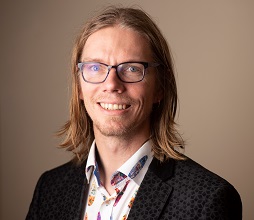
Enabling researchers from across disciplines to work together to address critical research questions that will ultimately lead to benefits in human health is one of the key objectives of the Centre for Biomedical Modelling and Analysis. We know that many advances in human health will only be achieved through teams of researchers working collectively on a common goal, yet the challenges to achieving this – from understanding each other’s language through securing funding, publishing your findings and onto translating your ideas into useful tools – mean that researchers have to work extremely hard to achieve all this. We created the “research incubator” in an attempt to overcome some of these common challenges.
We take our research teams on a retreat, where we give them time to speak with each other, and our CBMA Fellows, to work up a project plan that is deliverable over the six months. They work with a range of experts to further address some of the key outcomes necessary for a successful research project. These include our research managers to identify opportunities for follow-on funding to grow their projects, our commercial and industry engagement teams to identify opportunities for protecting intellectual property and for innovation and links with industry.
A further critical part is the involvement of our public engagement team and our own group of “MAGPIEs” who work with all of the teams to challenge the research questions, ensuring that they are relevant to a wider audience, as well as coming up with plans for involving relevant members of the public as the projects develop and communicating the outcomes to key audiences as they emerge.
But what’s it really like to take part in the research incubator? Here we get the opinions of some of the people involved:
Karen Knapp, Professor, Citizen Segmentation project
It was a real privilege to be involved in the incubator event in September to help shape our project on whether citizens can be trained in a short time to accurately outline specific anatomy on MRI scans. Two days in the middle of Dartmoor with nothing to focus on except developing our embryonic research idea into a fully-fledged seed-corn project, with the support and assistance from experienced researchers, research accountants, intellectual property experts, engaged public and research fellows to help it all happen was just excellent. It felt like we achieved in a short time what it usually takes months to. The research fellows working on the project with us are making a real difference to driving it forward as well. The quick decision and start date meant the momentum was not lost and within a month, we are already well underway with the project.
Nigel Reed, MAGPIE
Being involved in the incubator event as a lay person was a fantastic experience. Meeting, working and socialising with an amazing bunch of researchers was great, as was, at the end of the two days, going home with a sense that my colleagues and I had done something of importance. Actually, I think us lay people helped do three things! The first was to help the researchers look at their research with a fresh pair of eyes, to see how to communicate their research more effectively, and to think more about the potential benefits of their research to society. The second was to help them realise that involving the public and patients in their research would bring improvements to the research, and to plan to make that happen. Thirdly, and the most difficult to explain, is something about remembering the bigger picture, reminding ourselves that yes the aim of the research is to explore and understand, but that ultimately it is about more than that, it is about changing people’s lives for the better.
Dr David Richards, CBMA Fellow
As in the previous round, the incubator was a great way to kick off my new seed corn project. This is going to involve Dr Mike Deeks in Biosciences and Prof. Christian Soeller in Physics, and will study the plant immune response to being attacked by microbes. We have lots of images of this, but little understanding of exactly what is happening. Using computer programming and mathematics, we aim to change this!
During the incubator, we were able to develop some interesting ideas about possible future commercialisation and ways to involve the public (including a possible graphic novel – watch this space!). But most importantly, it gave us time to talk about the project and discuss how we were going to run it. In fact, on the second morning, we even started working on the project itself – writing some computer code to analyse some of the images.